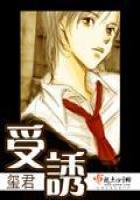BACK TO BOSTON.
From Louisville we returned to Cincinnati, in making which journey we were taken to a place called Seymour, in Indiana, at which spot we were to "make connection" with the train running on the Mississippi and Ohio line from St. Louis to Cincinnati. We did make the connection, but were called upon to remain four hours at Seymour in consequence of some accident on the line. In the same way, when going eastward from Cincinnati to Baltimore a few days later, I was detained another four hours at a place called Crestline, in Ohio.
On both occasions I spent my time in realizing, as far as that might be possible, the sort of life which men lead who settle themselves at such localities. Both these towns--for they call themselves towns--had been created by the railways. Indeed this has been the case with almost every place at which a few hundred inhabitants have been drawn together in the Western States. With the exception of such cities as Chicago, St. Louis, and Cincinnati, settlers can hardly be said to have chosen their own localities. These have been chosen for them by the originators of the different lines of railway. And there is nothing in Europe in any way like to these Western railway settlements. In the first place, the line of the rails runs through the main street of the town, and forms not unfrequently the only road. At Seymour I could find no way of getting away from the rails unless I went into the fields. At Crestline, which is a larger place, I did find a street in which there was no railroad, but it was deserted, and manifestly out of favor with the inhabitants. As there were railway junctions at both these posts, there were, of course, cross-streets, and the houses extended themselves from the center thus made along the lines, houses being added to houses at short intervals as new-corners settled themselves down. The panting, and groaning, and whistling of engines is continual; for at such places freight trains are always kept waiting for passenger trains, and the slower freight trains for those which are called fast. This is the life of the town; and indeed as the whole place is dependent on the railway, so is the railway held in favor and beloved. The noise of the engines is not disliked, nor are its puffings and groanings held to be unmusical. With us a locomotive steam-engine is still, as it were, a beast of prey, against which one has to be on one's guard--in respect to which one specially warns the children. But there, in the Western States, it has been taken to the bosoms of them all as a domestic animal; no one fears it, and the little children run about almost among its wheels. It is petted and made much of on all sides--and, as far as I know, it seldom bites or tears. I have not heard of children being destroyed wholesale in the streets, or of drunken men becoming frequent sacrifices. But had I been consulted beforehand as to the natural effects of such an arrangement, Ishould have said that no child could have been reared in such a town, and that any continuance of population under such circumstances must have been impracticable.
Such places, however, do thrive and prosper with a prosperity especially their own, and the boys and girls increase and multiply in spite of all dangers. With us in England it is difficult to realize the importance which is attached to a railway in the States, and the results which a railway creates. We have roads everywhere, and our country had been cultivated throughout with more or less care before our system of railways had been commenced; but in America, especially in the North, the railways have been the precursors of cultivation. They have been carried hither and thither, through primeval forests and over prairies, with small hope of other traffic than that which they themselves would make by their own influences. The people settling on their edges have had the very best of all roads at their service; but they have had no other roads. The face of the country between one settlement and another is still in many cases utterly unknown; but there is the connecting road by which produce is carried away, and new-comers are brought in. The town that is distant a hundred miles by the rail is so near that its inhabitants are neighbors; but a settlement twenty miles distant across the uncleared country is unknown, unvisited, and probably unheard of by the women and children. Under such circumstances the railway is everything. It is the first necessity of life, and gives the only hope of wealth. It is the backbone of existence from whence spring, and by which are protected, all the vital organs and functions of the community. It is the right arm of civilization for the people, and the discoverer of the fertility of the land. It is all in all to those people, and to those regions.
It has supplied the wants of frontier life with all the substantial comfort of the cities, and carried education, progress, and social habits into the wilderness. To the eye of the stranger such places as Seymour and Crestline are desolate and dreary. There is nothing of beauty in them--given either by nature or by art. The railway itself is ugly, and its numerous sidings and branches form a mass of iron road which is bewildering, and, according to my ideas, in itself disagreeable. The wooden houses open down upon the line, and have no gardens to relieve them. A foreigner, when first surveying such a spot, will certainly record within himself a verdict against it; but in doing so he probably commits the error of judging it by a wrong standard. He should compare it with the new settlements which men have opened up in spots where no railway has assisted them, and not with old towns in which wealth has long been congregated. The traveler may see what is the place with the railway; then let him consider how it might have thriven without the railway.















